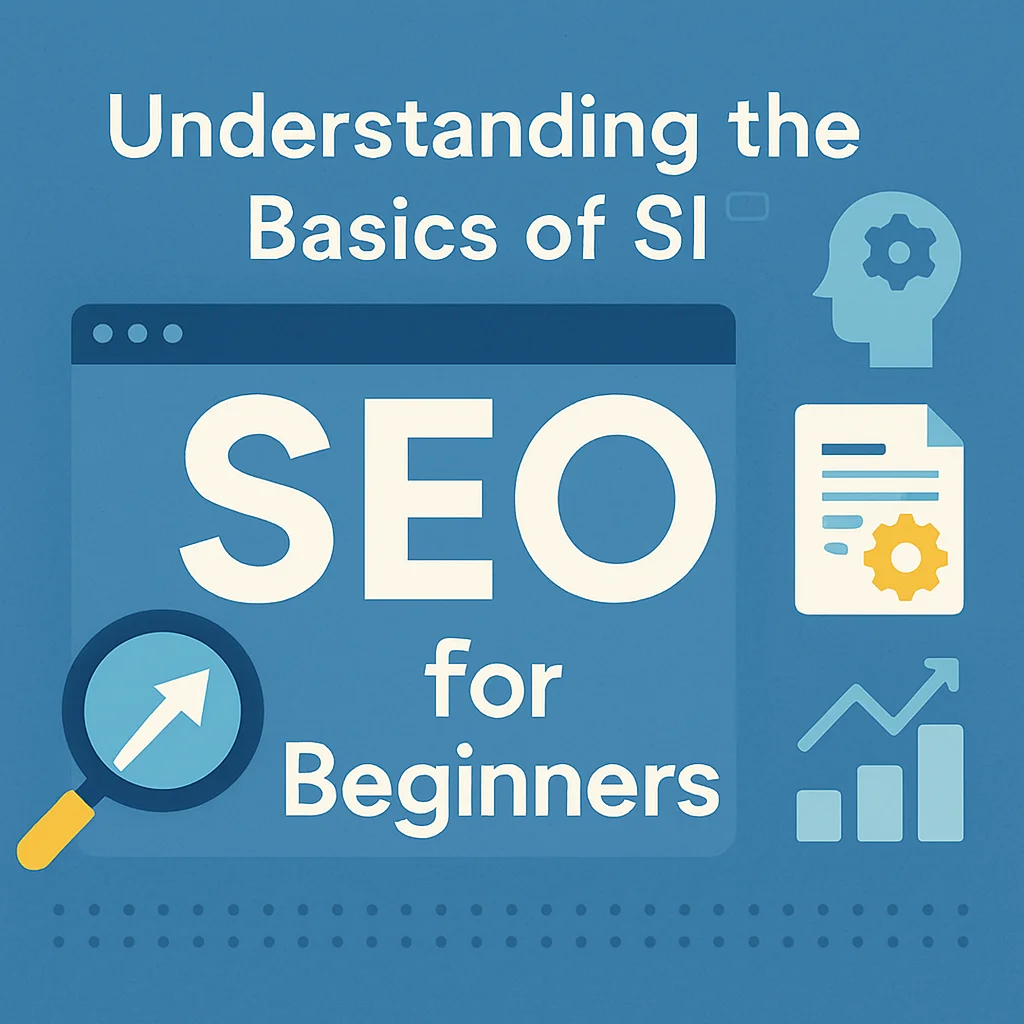Understanding the Basics of SEO for Beginners
Introduction: Understanding the Basics of SEO for Beginners
With millions of websites competing for attention online, mastering the fundamentals of SEO has become more important than ever. Understanding the basics of SEO for beginners is the first step toward building a strong, visible, and sustainable online presence.
Search Engine Optimization (SEO) is not just about ranking higher on Google—it’s about creating a better user experience, providing valuable content, and ensuring that your website meets modern technical standards. Whether you’re launching a new site or looking to improve an existing one, learning the foundational principles of SEO will put you on the path to digital success.
1. What is SEO?
SEO stands for Search Engine Optimization. It’s the process of improving your website to increase its visibility when people search for products, services, or information related to your business on search engines like Google, Bing, and Yahoo.
The better visibility your pages have in search results, the more likely you are to attract attention and gain prospective and existing customers.
For a deeper understanding, explore our SEO Services tailored to help businesses grow online.
Learn more about the key elements involved in understanding the basics of SEO for beginners and setting a strong digital foundation.
SEO Can Be Broken Down Into Three Main Areas:
- On-Page SEO: Content and HTML source code optimization (e.g., keyword usage, headings, meta descriptions)
- Off-Page SEO: External efforts like backlink building, social signals, and influencer marketing
- Technical SEO: Optimizing the backend of the site (e.g., site speed, mobile-friendliness, indexing)
Learn more about these essentials in our blog post on How SEO Works: The Basics for Website Success.
2. The Importance of Keywords
Understanding the strategic use of keywords is one of the first lessons when understanding the basics of SEO for beginners.
Keywords are the terms or phrases users type into search engines. Selecting the right keywords—and using them thoughtfully throughout your website content—is crucial for SEO success.
Tips for keyword usage:
- Focus on long-tail keywords (e.g., “best running shoes for women”) for more specific traffic.
- Avoid keyword stuffing; prioritize natural language.
- Use keywords in your page titles, headings, and meta descriptions.
Tools like Google Trends can help identify trending search terms relevant to your industry.
3. High-Quality Content is Essential
Content remains king. Google rewards websites that offer valuable, original, and relevant information. When creating content:
- Answer common questions your audience might have.
- Use headings (H1, H2, H3) to organize information clearly.
- Incorporate multimedia like images, videos, and infographics.
Aim to create content that satisfies search intent—what users are actually looking for when they type in a query.
Need ideas? Check out our post on Creating High-Quality Content That Drives Results.
4. On-Page Optimization Basics
On-page SEO helps search engines understand what your content is about. Key elements include:
- Title Tags: Should include the main keyword and accurately describe the page.
- Meta Descriptions: Short summaries that encourage users to click.
- Header Tags: Use H1 for your main title, H2 for subsections, and so on.
- Alt Text for Images: Describes what the image is for visually impaired users and improves SEO.
Learning the basics of SEO for beginners often starts with mastering these on-page fundamentals.
Learn more detailed tips in our Complete Guide to On-Page SEO.
A clean, well-structured page is easier for both users and search engines to navigate.
5. The Role of Mobile-Friendliness and Page Speed
A mobile-optimized website is no longer optional. With the majority of searches happening on mobile devices, Google uses mobile-first indexing. Ensure that your website:
- Loads quickly (aim for under 3 seconds)
- Is responsive to different screen sizes
- Has readable fonts and clickable buttons
Building a mobile-friendly, fast-loading site is crucial. Visit our Web Design Services page to learn how we ensure mobile optimization.
Tools like PageSpeed Insights can help evaluate your website’s loading time and performance.
6. Building Trust with Backlinks
Backlinks are links from other reputable websites to your own. They act as endorsements, telling search engines that your content is trustworthy and authoritative.
To build backlinks:
- Create high-quality, shareable content
- Collaborate with industry blogs or influencers
- Submit your site to relevant directories
For an overview, check out our blog post How to Build Backlinks That Actually Help SEO.
7. Tracking SEO Performance
Tracking your progress is key to improving your SEO strategy. Free tools like Google Search Console and Google Analytics provide insights into:
- How people are finding your site
- Which pages are ranking
- Where you can improve
Monitoring metrics like organic traffic, bounce rate, and keyword rankings will help refine your approach over time.
Conclusion
Understanding the basics of SEO for beginners provides a strong foundation for anyone looking to improve their website’s visibility and performance. From choosing the right keywords and creating quality content to optimizing for mobile users and building backlinks, each step contributes to better search rankings and a better user experience.
Mastering understanding the basics of SEO for beginners ensures that your business is equipped with the skills necessary to thrive in today’s competitive digital landscape.
SEO is a long-term strategy, but the effort is well worth it.
Need help implementing these strategies? Contact us to get started on optimizing your website today.





